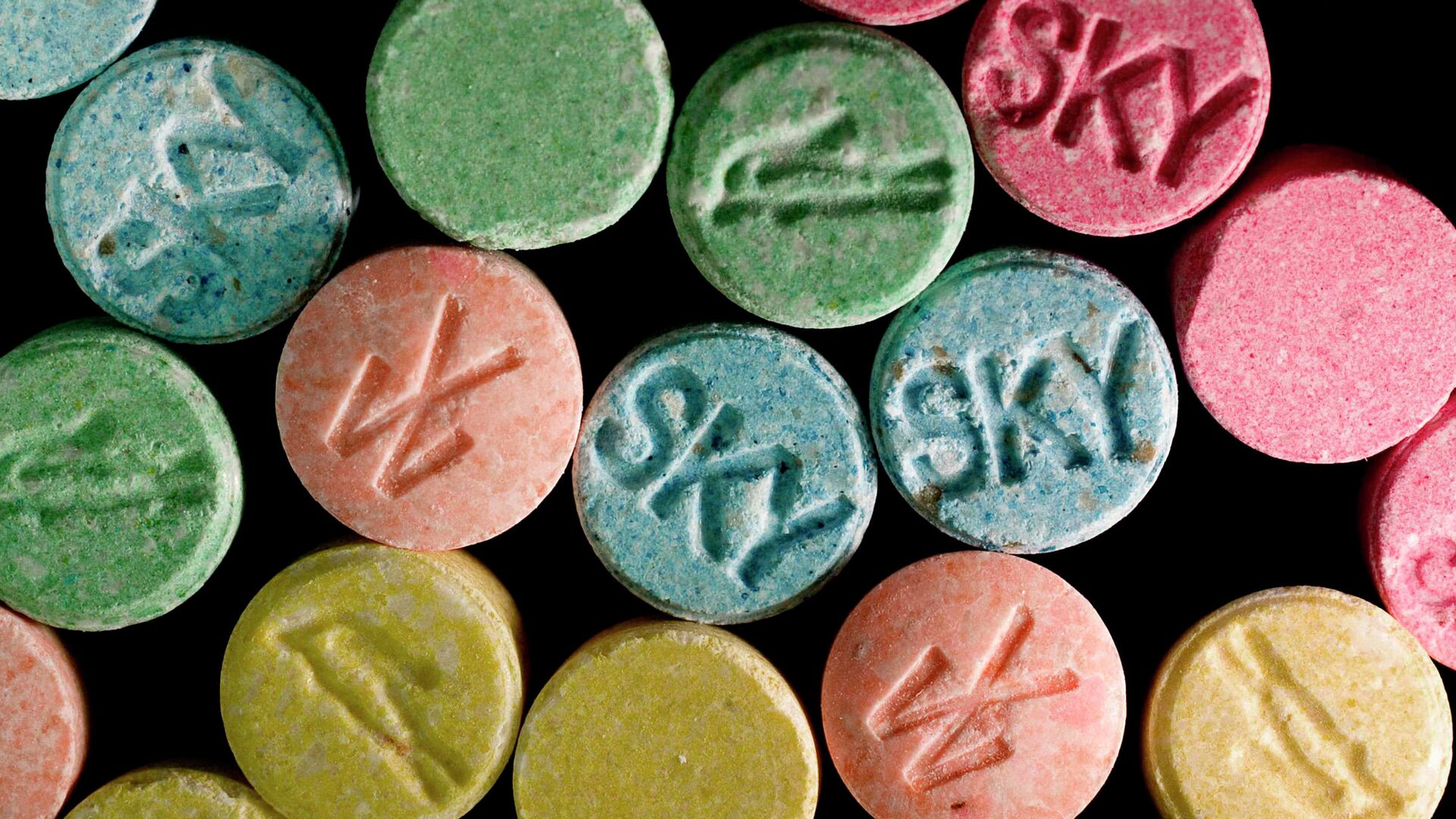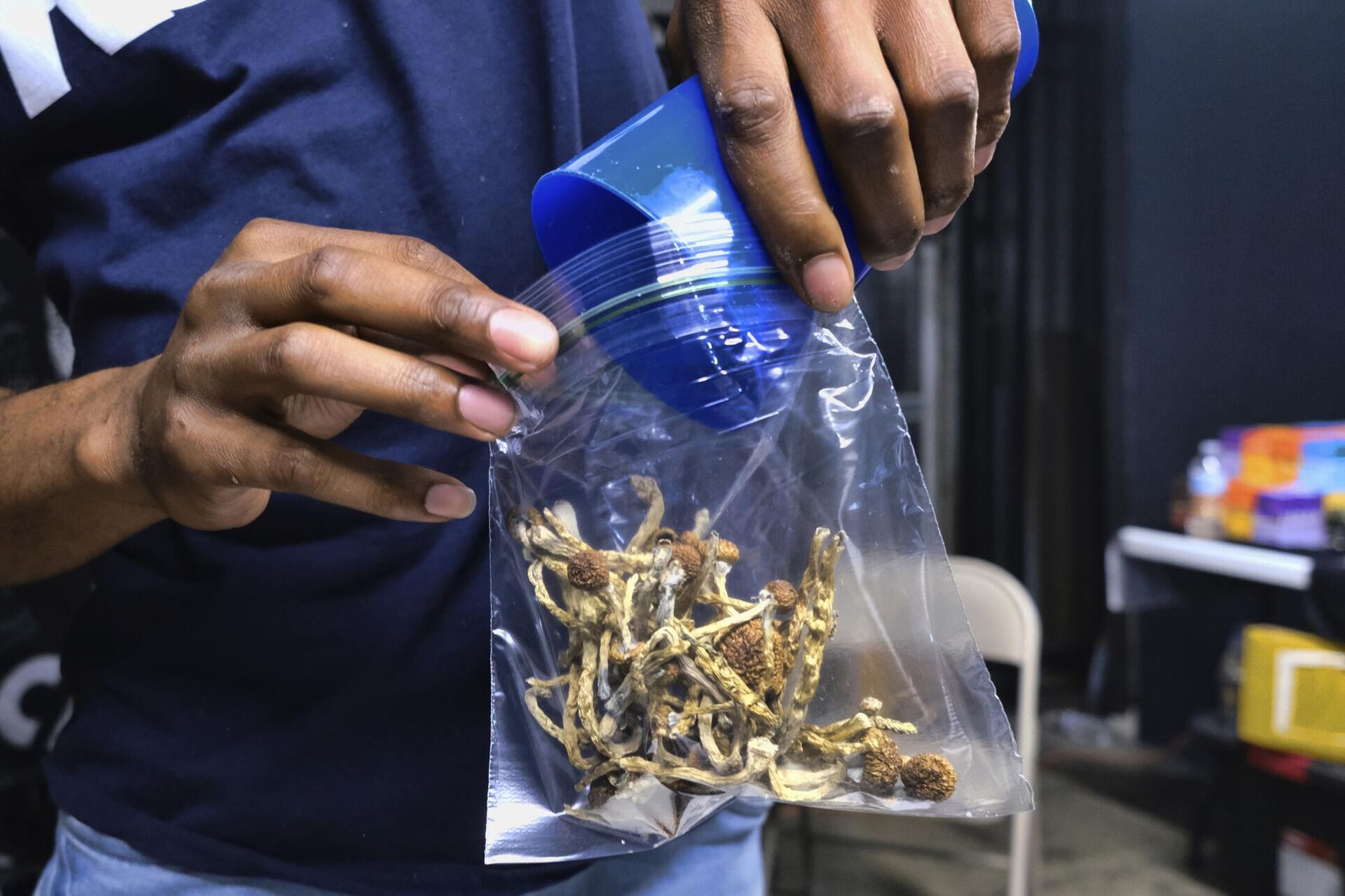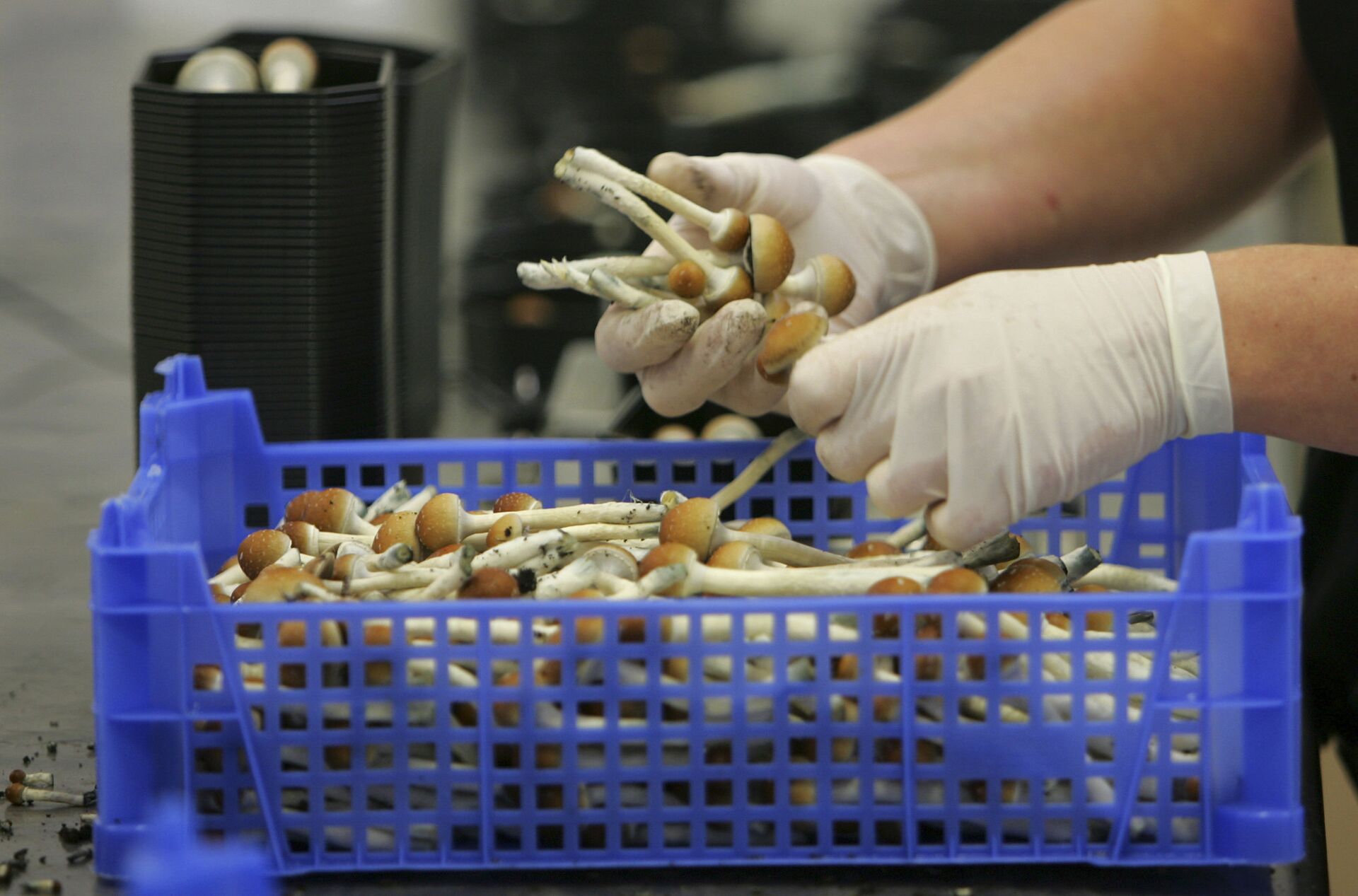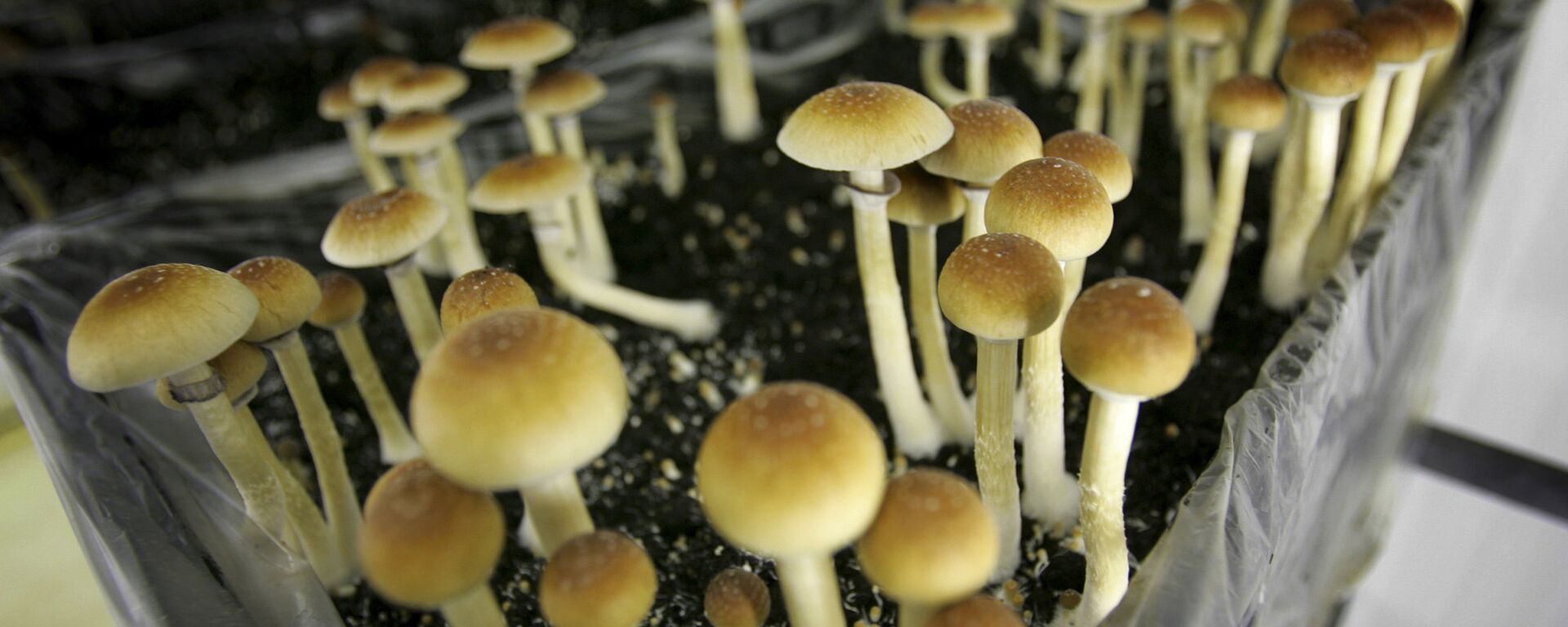https://sputnikglobe.com/20230702/is-australia-jumping-the-gun-in-legalizing-the-prescription-of-psychedelic-medicine-1111620873.html
Is Australia Jumping the Gun in Legalizing Prescription of Psychedelic Medicine?
Is Australia Jumping the Gun in Legalizing Prescription of Psychedelic Medicine?
Sputnik International
Australia’s move to become the world’s first country to allow clinical prescribing of MDMA, and psilocybin for a spate of psychiatric conditions has left many clinicians and researchers concerned.
2023-07-02T13:48+0000
2023-07-02T13:48+0000
2023-07-02T13:53+0000
world
ecstasy
post-traumatic stress disorder (ptsd)
mental health
australia
psychiatric disorders
depression
https://cdn1.img.sputnikglobe.com/img/102259/17/1022591749_0:104:2000:1229_1920x0_80_0_0_7b683786549101010b44e4ab4751220f.jpg
Australia’s controversial move to become the world’s first country to allow the clinical prescription of MDMA, better known as part of the drug ecstasy, and psilocybin - the main ingredient in 'magic' mushrooms - for a raft of psychiatric conditions has left many clinicians and researchers concerned.Was the decision rushed, people have asked, and others have expressed the fear that even authorized psychiatrists lack the competence to issue such prescriptions for drugs which are otherwise illegal in Australia. What costs will this entail? These are some of the concerns uppermost among experts in the field.At the time, the TGA said the decision was prompted by a "lack of options" for people with some mental illnesses that did not respond to other treatments. The TGA emphasized that the drugs had only been approved for use under "controlled medical settings by authorized psychiatrists". The TGA-approved medicines containing MDMA or psilocybin available in Australia, meaning authorized psychiatrists will need to supply patients with "unapproved" medicines containing those substances.'Not For Everybody'3,4-Methylenedioxymethamphetamine, commonly known as ecstasy, and psilocybin are both Schedule 9 (prohibited substances) in Australia. The drugs in question are still being tested in clinical trials.The decision to approve their being prescribed for the treatments in question is very "early" as compared with the "usual process of developing and rolling out new treatments”, clinical psychiatrist Dr. Colleen Loo, a professor of psychiatry at the University of New South Wales and the Black Dog Institute in Sydney told the media.Swinburne University of Technology cognitive neuropsychologist Professor Susan Rossell agreed, pointing out that "substantial further research" was needed to assess which conditions were best treated with psychedelic drugs.Other experts speculated whether the cited initial "very promising positive effects of reductions in depression" last. Furthermore, if they didn't would there not be the risk of relapse, or other issues that might occur?According to Professor Steve Kisely, a psychiatrist at the University of Queensland who was involved in work on the 2021 report to the TGA on the drugs in question, believes they "show promise in some people when administered in clinical settings with professional support". However, he expressed deep concern about the lack of extensive research into which patients are most suited to psychedelic medicines. Furthermore, lack of guidance surrounding the kind of specific clinical setting in which these drugs will be administered is a cause for concern.For People With Deep PocketsIf we do the maths, we will see that such treatment through the public system will probably be out of reach for many Australians.The cost of psychedelic-assisted therapy is likely to be around at least $25,000. The two drugs cost between $1,000 and $2,000 for a standard course of treatment, according to researchers cited in Australian media. The cost will grow even more as clinical trials linked with administering of the drugs will include considerable screening, as well as additional psychotherapy support. Only after the cost-effectiveness of the psychedelic-assisted therapy has been established, a decision might eventually be made to subsidize it through Medicare - the publicly funded universal health care insurance scheme.Experts emphasize that setting up guidance and resources for psychiatrists ready to work in psychedelic therapies will also take both time and money. Furthermore, psychology staff, clinicians are saying, will be stretched, and new therapies are likely to take time away from other patients requiring more traditional treatment.Overall, there needs to be an accumulated evidence base regarding the "efficacy and safety outcomes via a clinical registry”, it was added.Looking ahead, Dr Bright was quoted as saying:
https://sputnikglobe.com/20220825/the-active-ingredient-in-magic-mushrooms-shows-promise-in-curbing-alcoholism-1099966335.html
https://sputnikglobe.com/20220419/magic-mushrooms-showing-promise-in-treating-depression-mental-illness-1094894674.html
australia
Sputnik International
feedback@sputniknews.com
+74956456601
MIA „Rossiya Segodnya“
2023
News
en_EN
Sputnik International
feedback@sputniknews.com
+74956456601
MIA „Rossiya Segodnya“
Sputnik International
feedback@sputniknews.com
+74956456601
MIA „Rossiya Segodnya“
australia, therapeutic goods administration, tga, drugs, clinical prescribing, mdma, party drug ecstasy, psilocybin, magic mushrooms, psychiatric conditions, approved for use, authorised psychiatrists,
australia, therapeutic goods administration, tga, drugs, clinical prescribing, mdma, party drug ecstasy, psilocybin, magic mushrooms, psychiatric conditions, approved for use, authorised psychiatrists,
Is Australia Jumping the Gun in Legalizing Prescription of Psychedelic Medicine?
13:48 GMT 02.07.2023 (Updated: 13:53 GMT 02.07.2023) Australia's drug regulator, the Therapeutic Goods Administration (TGA), which approved the use of psychedelics to treat some mental health conditions back in February 2023, said the decision came after a nearly three-year process and included extensive consultation with experts.
Australia’s controversial move to become the world’s first country to allow the clinical prescription of MDMA, better known as part of the drug
ecstasy, and psilocybin - the main ingredient in 'magic' mushrooms - for a raft of psychiatric conditions has left many clinicians and researchers concerned.
Was the decision rushed, people have asked, and others have expressed the fear that even authorized psychiatrists lack the competence to issue such prescriptions for drugs which are otherwise illegal in Australia. What costs will this entail? These are some of the concerns uppermost among experts in the field.
On 3 February 2023, the Australian regulator the Therapeutic Goods Administration (TGA) announced that medicines containing the psychedelic substances MDMA and psilocybin would be prescribed by approved psychiatrists for use in treating post-traumatic stress disorder (PTSD) and treatment-resistant depression, respectively, as of 1 July.
At the time, the TGA said the decision was prompted by a "lack of options" for people with some
mental illnesses that did not respond to other treatments. The TGA emphasized that the drugs had only been approved for use under "controlled medical settings by authorized psychiatrists". The TGA-approved medicines containing MDMA or psilocybin available in Australia, meaning authorized psychiatrists will need to supply patients with "unapproved" medicines containing those substances.
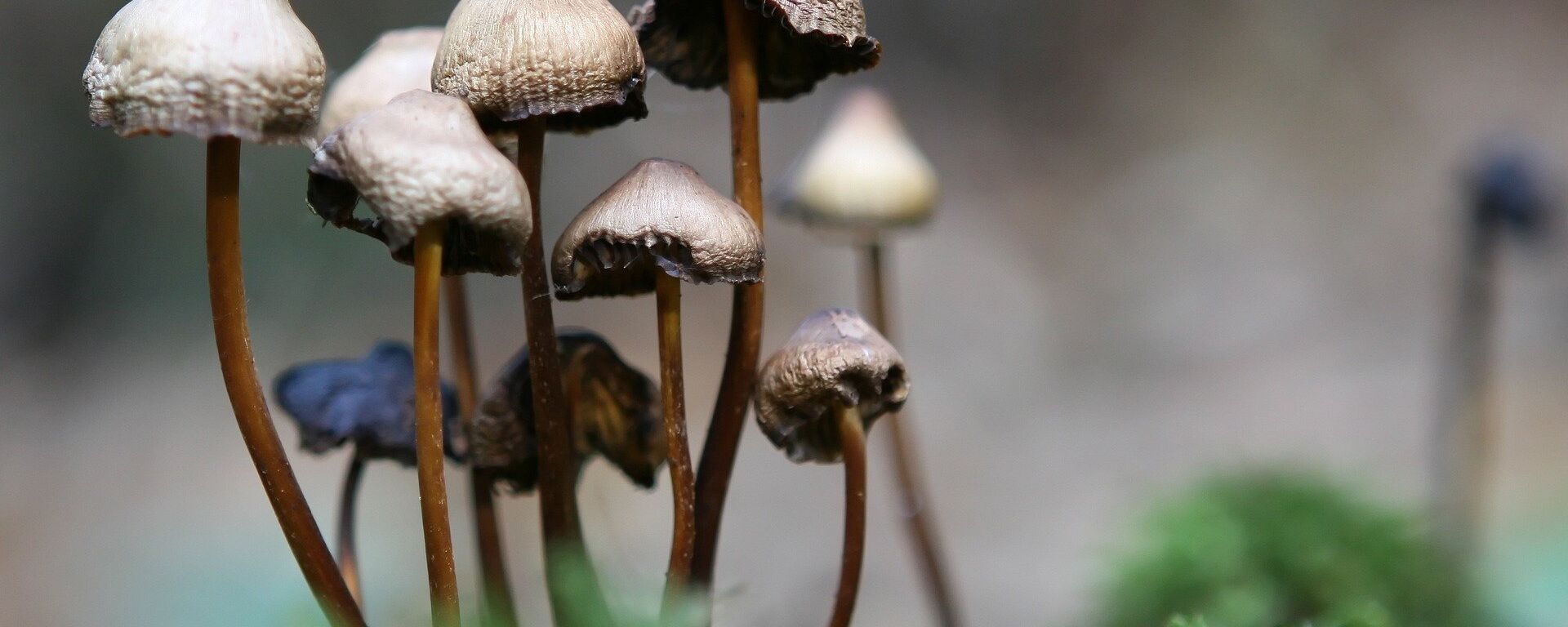
25 August 2022, 03:33 GMT
3,4-Methylenedioxymethamphetamine, commonly known as ecstasy, and psilocybin are both Schedule 9 (prohibited substances) in Australia. The drugs in question are still being tested in clinical trials.
The decision to approve their being prescribed for the treatments in question is very "early" as compared with the "usual process of developing and rolling out new treatments”, clinical psychiatrist Dr. Colleen Loo, a professor of psychiatry at the University of New South Wales and the Black Dog Institute in Sydney told the media.
Swinburne University of Technology cognitive neuropsychologist Professor Susan Rossell agreed, pointing out that "substantial further research" was needed to assess which conditions were best treated with psychedelic drugs.
"We've got no data on long-term outcomes at all, so that worries me a lot," she added.
Other experts speculated whether the cited initial "very promising positive effects of reductions in depression" last. Furthermore, if they didn't would there not be the risk of relapse, or other issues that might occur?
"The science is at a point where we can say it is too early to be prescribing MDMA for PTSD patients. Instead, we should be investing in research to understand how MDMA can be used in relation to proven treatments," Scientia Professor Richard Bryant from the School of Psychology at the University of NSW said.
According to Professor Steve Kisely, a psychiatrist at the University of Queensland who was involved in work on the 2021 report to the TGA on the drugs in question, believes they "show promise in some people when administered in clinical settings with professional support". However, he expressed deep concern about the lack of extensive research into which patients are most suited to psychedelic medicines. Furthermore, lack of guidance surrounding the kind of specific clinical setting in which these drugs will be administered is a cause for concern.
For People With Deep Pockets
If we do the maths, we will see that such treatment through the public system will probably be out of reach for many Australians.
The cost of psychedelic-assisted therapy is likely to be around at least $25,000. The two drugs cost between $1,000 and $2,000 for a standard course of treatment, according to researchers cited in Australian media. The cost will grow even more as clinical trials linked with administering of the drugs will include considerable screening, as well as additional psychotherapy support.
"For the actual patient, it might be $25,000 to $30,000 for a treatment,” Dr Stephen Bright, a senior lecturer at Edith Cowan University, Western Australia, and a director of the Psychedelic Research In Science & Medicine charity was cited as saying.
Only after the cost-effectiveness of the psychedelic-assisted therapy has been established, a decision might eventually be made to subsidize it through Medicare - the publicly funded universal health care insurance scheme.
"If it turns out to be cost-effective, it will be in the government's interests to fund it," Dr Paul Liknaitzky, head of the Clinical Psychedelic Lab at Monash University, Melbourne, told the media.
Experts emphasize that setting up guidance and resources for psychiatrists ready to work in psychedelic therapies will also take both time and money. Furthermore, psychology staff, clinicians are saying, will be stretched, and new therapies are likely to take time away from other patients requiring more traditional treatment.
Overall, there needs to be an accumulated evidence base regarding the "efficacy and safety outcomes via a clinical registry”, it was added.
Looking ahead, Dr Bright was quoted as saying:
"The tight controls of therapy mean there are very few psychologists who put their hand up. There will be a few clinics that open up, but I don’t think we're going to see the floodgates open."
